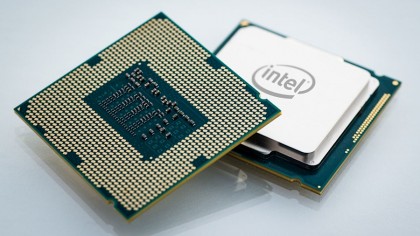
Coffee Lake Refresh has been the long-rumored code name for Intel’s next generation processor for desktops, but we may have just stumbled upon our first official confirmation (and possible correction), thanks to early drivers.
While updating our Ultimate Mini Gaming PC over the weekend, we spotted one Intel Graphics Accelerator Driver on Asus’s website that claims it will “improve system stability & support Intel next gen CPU[s].”
Upon downloading the driver update, we opened up a readme file that makes several references to “8th Gen Intel(R) Core(TM) processor family (Code name Kaby Lake Refresh, Coffee Lake, Coffee Lake S Refresh).”
Up until now, it was widely expected that this upcoming processor update would be known as simply 'Coffee Lake Refresh,' as the 'S' is assumed with today's Coffee Lake chips.

Based on all the leaks, rumors and now official evidence, there seems to be no doubt that Intel’s rumored Intel Core i9-9900K, Core i7-9700K and other 9000-series processors will all be part of Coffee Lake Refresh. Of course, that’s merely a code name.

As with previous chip launches, going forward Intel will only refer to them as 8th Generation processors, just like the original Coffee Lake 8000-series, which is annoying. But, it could be worse, as the mobile 8th generation CPU family includes Kaby Lake Refresh, Coffee Lake, Whisky Lake and Amber Lake chips all at the same time with very similar model names.
We’re getting awfully close to Intel Coffee Lake Refresh’s rumored October launch. From everything we’ve gathered, it seems like Team Blue will be introducing its fastest series of processors yet featuring fancy new packaging, soldered heat spreaders for fantastic overclocking and significantly higher gaming performance.
Get daily insight, inspiration and deals in your inbox
Sign up for breaking news, reviews, opinion, top tech deals, and more.
We've contacted Asus and Intel for comment on this story, and will update with a response should we receive one.
- AMD may have a new Ryzen 2nd Generation waiting in the wings
Kevin Lee was a former computing reporter at TechRadar. Kevin is now the SEO Updates Editor at IGN based in New York. He handles all of the best of tech buying guides while also dipping his hand in the entertainment and games evergreen content. Kevin has over eight years of experience in the tech and games publications with previous bylines at Polygon, PC World, and more. Outside of work, Kevin is major movie buff of cult and bad films. He also regularly plays flight & space sim and racing games. IRL he's a fan of archery, axe throwing, and board games.
